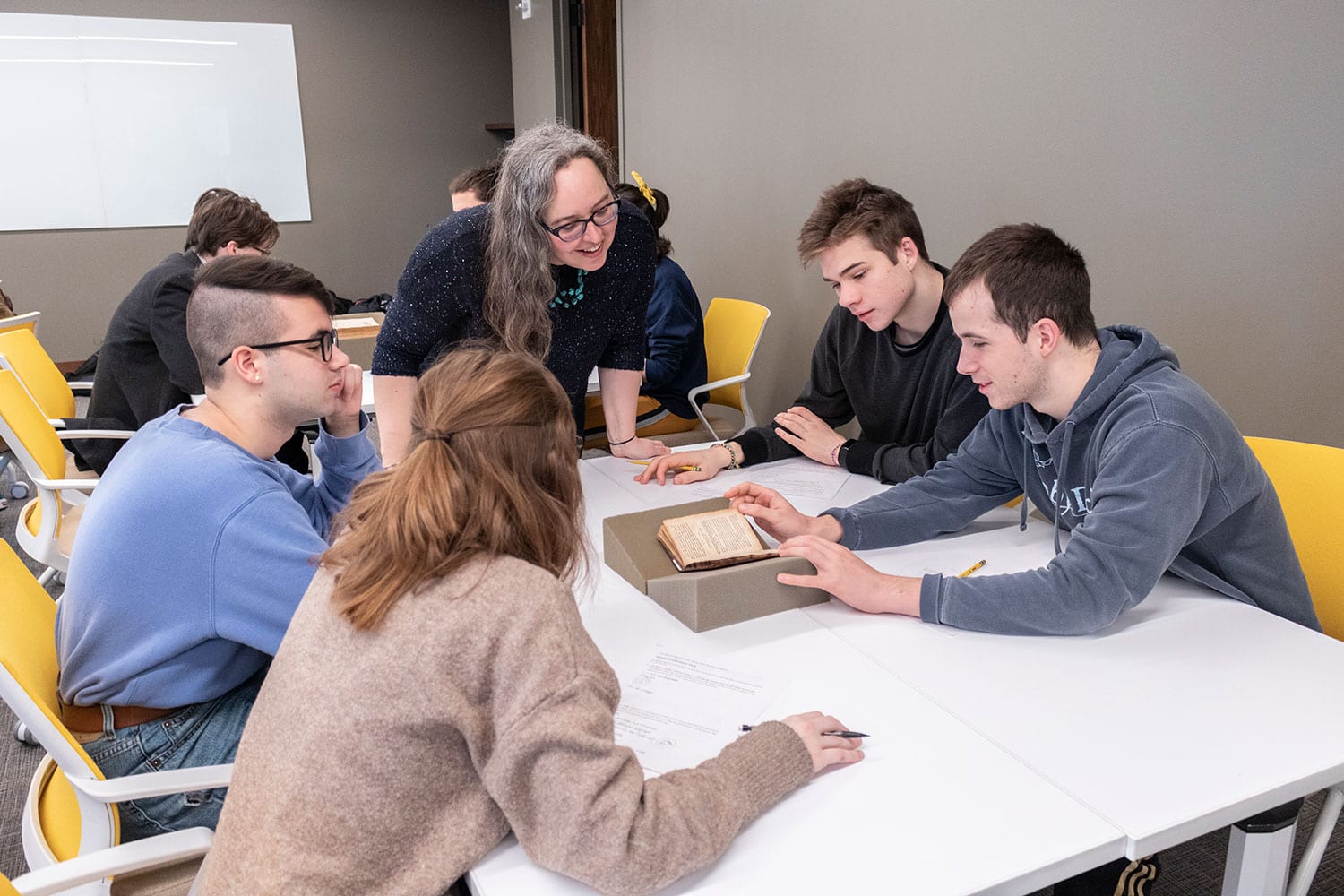Class Name: “Advanced Japanese: Discerning Hidden Meanings in Japanese Media”
Taught By: Lecturer in Japanese Kimiko Suzuki
Says Suzuki:
This course immerses students in an array of common Japanese media forms that subtly reinforce powerful, widely held, and often unquestioned historical, cultural, and political preconceptions underlying popular ideas about Japanese identity. Analysis of the media enables students to hone advanced understanding Japanese language, language variation, and associated underlying Japanese cultural values. Ultimately, however, the course is designed to develop students’ critical analytical skills in discerning and decoding the subtexts of the media, and, by extension, to deepen their awareness of how information in media inherently embodies preconceived values and notions of social hierarchy–in any linguistic or cultural setting.
I wanted to design a course module that is unique to Haverford and Bryn Mawr. One of the units in the course focuses on the ethical issues that involve the intertwined relations among Quakers, Haverford College, Bryn Mawr College, and Japan. This unit is designed to rediscover and critically analyze the ethical challenges faced by Quakers in 20th-century Japan. Students attempt to understand the ethical, moral, and political challenges, successes, and failures experienced by Japanese adherents of Quaker principles under conditions of potentially severe duress in the era of Japanese militarist expansionism during WWII and the post-war era.
Another unit, which is funded by the Diversity and Inclusion Course Development Fund, is on issues relating to diversity and inclusion in Japan. I designed this unit in order to provide students with a deeper awareness of how preconceived values and notions of social hierarchy are inherently embodied in any ‘diversity and inclusion’-related setting. In certain instances, issues of diversity, inclusion, and equity have been exploited by institutions to launder questionable practices [or] organizational reputation through “whitewashing” public relations initiatives. Our focus will be on Japan’s technical intern training program, which provides opportunities for foreign labor to counterbalance Japan’s labor shortage due to an aging society and falling birthrate. I hope this course will offer students a compelling and unique opportunity to enhance experience of difference, structures of power, and struggles to define and establish social justice.
Learn about other courses offered by the Bi-Co Japanese Language Program.

